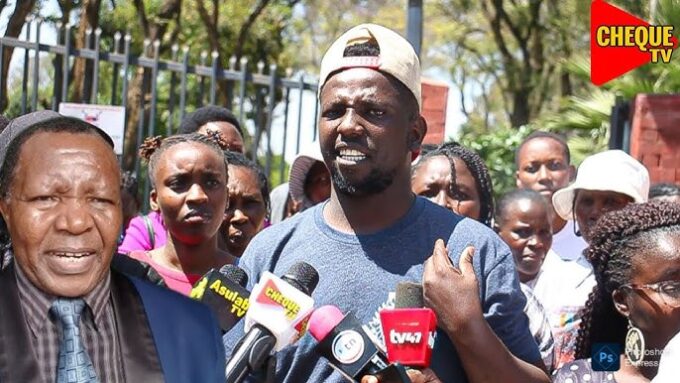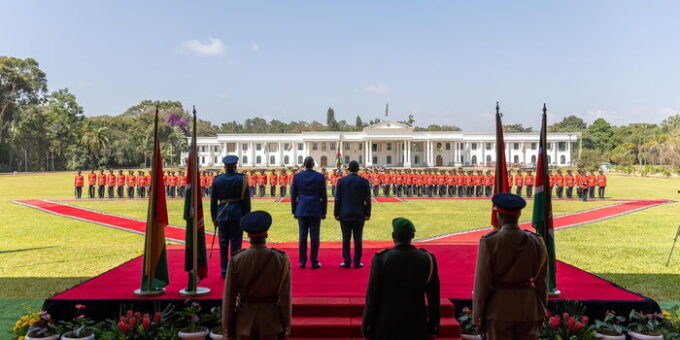At least 140 women and girls are killed on a daily basis globally as a result of gender violence.
According to a report by the United Nations (UN) the killings are committed by partners or close relatives.
The femicide report released on Monday November ,25 shows that in every 10 minutes, a girl or a woman is killed.
The report also emphasizes that the number of women and girls killed by their intimate partners or other family members has been on the rise in 2023.
The data showed that 51,100 women and girls were killed by their intimate partners or other family members in 2023, as compared to 48,800 victims in 2022.
The report compiled by UN Women and the UN Office on Drugs and Crime (UNODC) states that Africa had an estimated 21,700 victims of intimate partner/ family-related femicide in 2023.
The UN said that globally, around 1.3 women per 100,000 female population are estimated to have been killed by an intimate partner or another family member in 2023.
As per regional differences, Africa has the highest number of femicides, with 2.9 victims per 100,000 population in 2023.
America and Oceania also recorded high rates of intimate partner/family-related femicide in 2023, at 1.6 and 1.5 per 100,000 respectively.
The rates were significantly lower in Asia and Europe, at 0.8 and 0.6 per 100,000 respectively.
According to the data, 55 per cent of femicides worldwide are committed by family members, with 45 per cent perpetrated by intimate partners.
“This suggests that the home remains the most dangerous place for women and girls in terms of the risk of persecution,” the UN said.
“Considerably less is known about the patterns and risk factors associated with the intentional killings of women and girls by other family members, which may require a broader set of prevention strategies.”
The report further found that men were victims of most cases of homicide.
However, while intimate partners or family members kill 11.8 percent of men, 60.2 percent of women are affected.
On the other hand in Kenya, today marked the first day of 16 days of activism against Gender Based Violence.
On Wednesday November 20th, President William Ruto said the 16 days of activism would include the Safe Home, Safe Space Campaign, which would seek to end femicide.
However police officers have fired teargas at a group of anti-femicide protesters in Jeevanjee Gardens in Nairobi today despite the protesters gathering to demand that The head of state should declare Femicide as a national tragedy.
Speaking at the State House in Nairobi when he met with women leaders, the president offered 100 million to support the campaigns.
He said the government was committed to supporting policies that will put an end to the femicide, which has been on the rise in the country.
“Matters psychological support and safe spaces for women and children are a priority in my office,” he stated.
“Through the women’s rights advisor, we are launching a safe home safe space campaign during the 16 days of activism against gender -based violence that will start on November 25, 2024.” he added.
Ruto said society needs to be educated on the signs and causes of abuse and resources available to victims.
The President directed the criminal justice actors to carry out their orders without delay and hold the culprits of femicide fully accountable.
He said his administration is committed to ending all forms of violence.
“As leaders, we are united in the resolve to ensure that justice is swift and efficient. I have instructed the criminal justice actors to execute their mandates without delay, holding perpetrators of femicide fully accountable,” he said.
The head of state called for the gender desks in police stations to be enhanced, adding that the government will introduce similar services in hospitals to ensure victims receive immediate attention and care.
Noting that social media has become a dangerous avenue for exploitation, he urged the youth to treat strangers on these platforms with utmost caution.
“Parents, schools, churches, and community organisations must step up to provide life skills, counselling, and guidance on these matters,” Ruto added.
Gender-based violence is a phenomenon deeply rooted in gender inequality, and continues to be one of the most notable human rights violations within all societies. Gender-based violence is violence directed against a person because of their gender. Both women and men experience gender-based violence but the majority of victims are women and girls.











